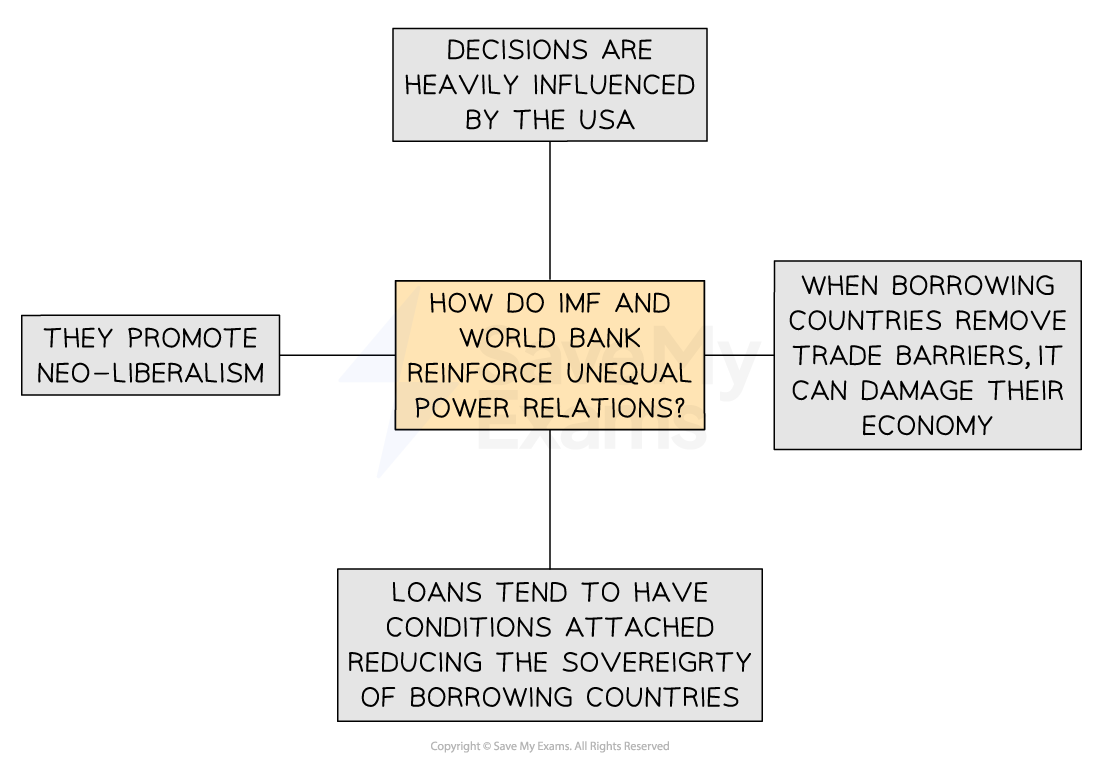Money, Ideas & Technology
- Unequal flows can promote growth and stability but can also create inequalities and conflict.
Impacts of Unequal Flows of People
| Positive impacts | Negative impacts |
| Economic growth in HDE countries such as Germany due to more people working and paying taxes |
LDE countries may suffer from brain drain e.g. health professionals such as doctors and nurses leaving countries like Nigeria |
| Reduced unemployment in LDE countries such as Nigeria as people can move to seek jobs elsewhere | Some people may not be able to migrate, so they remain trapped in a cycle of poverty e.g. in rural areas in sub-Saharan Africa |
| Refugees can find safety from conflict, disaster, or persecution e.g. Ukrainians fleeing the Russian invasion | Some people believe that migration leads to lower wages, leading to conflict, though there is little evidence to support this |
| Remittances can boost growth and development in LDE and EME countries e.g. India is the largest recipient of remittances receiving over $100 billion in 2022 | Migrant workers may be exploited and forced to work long hours for low wages in unsafe conditions e.g. construction workers in Qatar |
Impacts of Unequal Flows of Capital
| Positive impacts | Negative impacts |
| Economic growth and development due to FDI, aid and remittances e.g. remittances account for 2-4% of India’s GDP | Local businesses may struggle to compete with TNCs e.g. smaller retail companies may close if a Walmart opens nearby |
| Improved quality of life due to more job opportunities and better infrastructure e.g. China has invested in high-speed rail links in East Africa which has boosted trade and business opportunities | Outsourcing leads to deindustrialisation and unemployment in HDE countries e.g. in Detroit, USA |
| Lower production costs mean cheaper goods for people and larger profits for TNCs such as Apple | Environmental degradation and exploitation of workers e.g. Foxconn workers in China were forced to work long hours for low pay |
Impacts of Unequal Flows of Technology
| Positive impacts | Negative impacts |
| Can improve quality of life due to access to better health care and cleaner energy e.g. vaccinations have significantly reduced cases of Polio in Nigeria | Some people may struggle to access the latest innovations due to patents e.g. patents on antiretroviral drugs used to treat HIV made the medication unaffordable for many |
| Can promote economic growth and development through creation of jobs e.g. installation of solar panels in rural Rwanda provided access to electricity enabling people to improve skills and productivity | Can cause environmental degradation and climate change due to pollution e.g. coal accounts for 70% of electricity generation in India |
| Can lead to better education due to more access to information and technology via online learning platforms, digital textbooks and distance learning opportunities | Weapons may contribute to increased conflict and tensions e.g. flows of weapons into Ukraine from Western Europe and USA have arguably increased tensions with Russia |
Negative impacts
Impacts of Unequal Flows of Ideas
- HDE countries tend to have more influence on ideas about how the world should be run, for example, they promote neo-liberalism
- Positive impacts include the increase in trade and development
- Negative impacts include greater inequality, with the wealthiest benefitting the most
Exam Tip
It is worth considering whether you think that the positive impacts of these unequal flows outweigh the negative impacts. You could be asked to assess the impacts of unequal flows in an exam question and you would need to examine both sides of the argument before reaching evidenced judgements.


